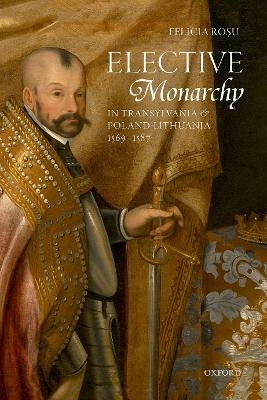
Elective Monarchy in Transylvania and Poland-Lithuania, 1569-1587
Seiten
2017
Oxford University Press (Verlag)
978-0-19-878937-6 (ISBN)
Oxford University Press (Verlag)
978-0-19-878937-6 (ISBN)
This book examines the transformation of the elective principle in Transylvania and the newly created Polish-Lithuanian Commonwealth in the early 1570s. These countries insisted on their right to 'free elections', despite the threat to public stability, and this served to transform their institutions and constitutions.
This book is an examination of why and how the elective principle, already established in Transylvanian and Polish political culture in the late medieval period, was transformed in the early elections of the 1570s. In this period, the two polities adopted constitutional arrangements different in depth and scope but based on the same fundamental principles: elective thrones, state-sanctioned religious pluralism, and constitutional guarantees for the right of disobedience. There were important variations in their regulation and application, but Transylvania and the newly created Polish-Lithuanian Commonwealth had one essential thing in common: they were the only two polities in early modern Europe whose political systems secured the succession of their rulers through large-scale elections in which the dynastic principle, although still important, was not binding.
This book is an examination of why and how the elective principle, already established in Transylvanian and Polish political culture in the late medieval period, was transformed in the early elections of the 1570s. In this period, the two polities adopted constitutional arrangements different in depth and scope but based on the same fundamental principles: elective thrones, state-sanctioned religious pluralism, and constitutional guarantees for the right of disobedience. There were important variations in their regulation and application, but Transylvania and the newly created Polish-Lithuanian Commonwealth had one essential thing in common: they were the only two polities in early modern Europe whose political systems secured the succession of their rulers through large-scale elections in which the dynastic principle, although still important, was not binding.
Felicia Rosu is a lecturer in history at Leiden University, where she teaches courses on historiography and early modern European politics, religion, and slavery. Her research so far has focused on the political culture and constitutional history of East Central Europe in the sixteenth and seventeenth centuries, and the frontier zone between Europe and the Ottoman Empire.
Introduction
1: Choosing to Elect
2: Campaigning
3: Voting
4: Contract
5: Authority
Conclusions
| Erscheinungsdatum | 24.02.2018 |
|---|---|
| Zusatzinfo | 7 black and white figures/illustrations |
| Verlagsort | Oxford |
| Sprache | englisch |
| Maße | 164 x 242 mm |
| Gewicht | 512 g |
| Themenwelt | Geschichte ► Allgemeine Geschichte ► Neuzeit (bis 1918) |
| Geisteswissenschaften ► Geschichte ► Hilfswissenschaften | |
| Geisteswissenschaften ► Geschichte ► Regional- / Ländergeschichte | |
| ISBN-10 | 0-19-878937-8 / 0198789378 |
| ISBN-13 | 978-0-19-878937-6 / 9780198789376 |
| Zustand | Neuware |
| Haben Sie eine Frage zum Produkt? |
Mehr entdecken
aus dem Bereich
aus dem Bereich
Europa 1848/49 und der Kampf für eine neue Welt
Buch | Hardcover (2023)
DVA (Verlag)
48,00 €
Giordano Bruno - ein ketzerisches Leben
Buch | Hardcover (2024)
C.H.Beck (Verlag)
29,90 €


